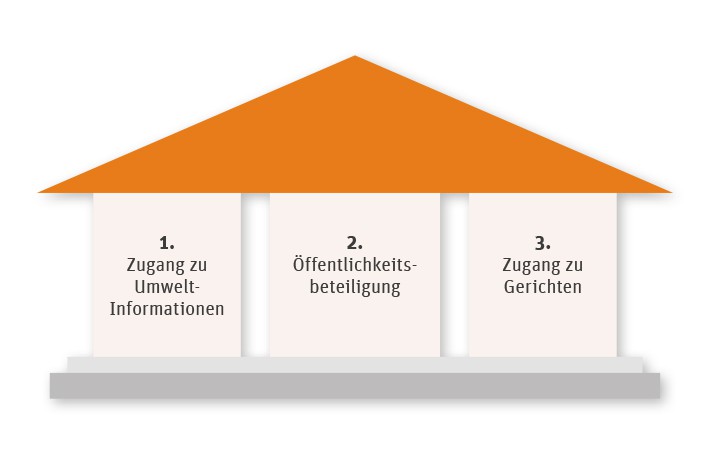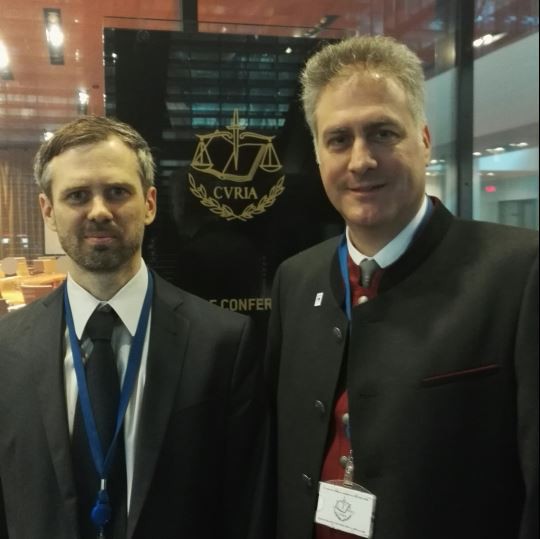
The three pillars of the Aarhus Convention: 1. Access to environmental information. 2. Public participation. 3. Access to justice
Aarhus Convention: Environmental rights for the public
The three pillars of the Aarhus Convention are: The Aarhus Convention lays down specific rights that aim to help protect the environment. Both environmental protection organisations and members of the public are granted access to environmental information, can participate in approval procedures and lobby in favour of the environment in court.
The Aarhus Convention, which is named after the Danish city in which it was signed, is an agreement adopted by the United Nations Economic Commission for Europe (UNECE). Although Austria and the EU signed the convention in 2005, many of the parties to the agreement are not making sufficient use of the rights currently afforded to them in several areas. That is why ÖKOBÜRO is committed to ensuring the full implementation of the Aarhus Convention in Austria, its neighbouring countries and the EU.
To bring this commitment to bear, we conduct legal studies on public participation, organise events on the topic and support the participation of concerned parties in environmental procedures. ÖKOBÜRO also has an impressive track record when it comes to taking legal action against violations of the Aarhus Convention. The subject of “Access to Justice” is also one of the key priorities of our European environmental law network Justice and Environment (J&E).
The three pillars of the Aarhus Convention are:
- Access to environmental information
- Public participation
- Access to courts
Public access to environmental information
In Austria, the general public has the right to obtain information in relation to environmental matters. This is governed by the Austrian Environmental Information Act and a series of provisions introduced in the individual federal states. The right to information about the state of our environment is not only a privilege to be enjoyed by environmental organisations – it is something that each and every one of us can take advantage of, regardless of our special interests.
Public participation in environmental procedures
Concerned members of the public have the right to participate in environmental procedures. This can manifest itself in a variety of ways, but the strongest form of participation is having party status. A party to a proceeding is granted access to project documentation, may raise objections and make suggestions, and can contest a notice of approval in court should this be necessary. Participation can, however, take a more informal structure: the publication of project documentation or the opportunity to express opinions and have them taken into consideration are also classed as forms of participation.
Legal protection against environmental violations
The Aarhus Convention guarantees that each and every person can exercise their rights to information and participation, including in court if needs be, ensuring the effective implementation of the two points outlined above. The third pillar also supports the enforcement of existing environmental legislation. Environmental protection organisations must also have the opportunity to take action against decisions made as part of environmental procedures.
ÖKOBÜRO fight for a full implementation of the Aarhus Convention

ÖKOBÜRO director Thomas Alge and Christoph Walder of WWF Austria at a hearing before the European Court of Justice
© ÖKOBÜRO